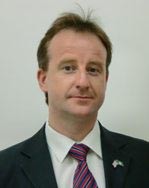
At night, the riverside fronts and the promenades are busy. Small restaurants offer alfresco dining, including local craft souvenirs. Pop-up stalls paint the landscape, along with musicians and other artists performing at various points along the way. This is the scene of a vibrant international city. Lights and images on building facades can form a memorable backdrop.
The night economy is part of the development and diversification of tourism products and, as such, the level of development will have an impact on Macao’s objectives. The city has defined several specific tourism products to be developed in the new concessions – some of them will take place automatically at night, such as concerts and shows.
But nightlife development may not materialize to its full potential from tourism products, requiring a more in-depth strategy and specific collaborative efforts between the public and private sectors. The nightlife can be incredibly attractive to international visitors and also add to their stay. Likewise, Macau has been challenged to expand the number of visitors and convert more day visits to overnight trips.
This format not only attracts visits for leisure, but also other segments. In the convention and expo industry, the evening social program is part of the attraction for the success of a bid or to encourage greater delegate participation. Nightlife is part of the imagery and messages used in the marketing and promotion programs of international cities. There are often promotional images of the city’s skyline during the day and night.
A vibrant nightlife brings direct and indirect benefits to the community and economy, providing additional income, employment opportunities and small business initiatives, promoting and sustaining local cultural and music efforts. Businesses that operate during the day in the tourism economy, such as restaurants, commercial establishments, taxis and bus companies, can generate additional revenue during the night. It also provides opportunities for sporting, musical, cultural events and autonomous festivals. The race for the night economy calls for innovation, to include artificial lighting – but these innovations add to the atmosphere and landscape of services. It can lead to innovation in small physical spaces – I’ve seen some on my visits – for example, individual car parks in front of the restaurant with a raised platform and a fence that allows for some tables and chairs. Restaurant staff need to cross the sidewalk to provide service. We know that the night can bring more benefits to tourism, but it must be planned, managed and part of the tourism development strategy. However, there are challenges to the development of nightlife and these also apply to Macao. Two key issues are legislation and collaboration between the public and private sectors. A strategy to create an exciting city full of nocturnal energy needs the participation of the private sector and, therefore, a return on investment perspective – whether it concerns the operation of restaurants, bars, clubs, craft stalls, night markets, whether to support local bands, artists or entertainers, in order to take advantage of this reserve of talent. Attendee expectations at evening events may extend to additional expenditures on food, beverages, souvenirs and entertainment as part of the overall event value experience. In some locations, improvements are needed to provide these additional services.
Specific legislation and regulation will be needed to manage and guide the development of the nightlife economy whether it concerns operating licenses, music or the recruitment of skilled labor – or public sector resources such as policing.
Many cities promote and market nightlife as part of tourism and therefore, for Macao, marketing valid images and messages of a vibrant nightlife, distinct from the competition, would be part of the strategy and could benefit tourism diversification efforts. .
*Associate Professor of Integrated Resort and Tourism Management at the University of Macau



